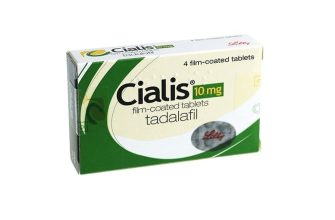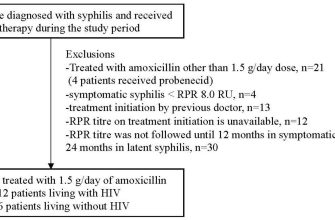Azithromycin is frequently prescribed for Non-Specific Urethritis (NSU), a common sexually transmitted infection. However, correct dosage and treatment duration are crucial for effective eradication. Typical regimens involve a single 1 gram oral dose, though your doctor might prescribe a longer course depending on the severity and the presence of other infections.
Remember: Azithromycin’s effectiveness against Chlamydia trachomatis, a frequent NSU culprit, is high, but resistance is emerging. Therefore, your doctor will likely perform diagnostic testing to confirm the infection and rule out other possibilities before prescribing azithromycin. This ensures targeted therapy.
Following the prescribed dosage is paramount. Incomplete treatment can lead to persistent infection, potential complications, and the development of antibiotic resistance. It is also vital to inform your doctor about any allergies or interactions with other medications you are currently taking.
Beyond medication, practicing safe sex is vital in preventing NSU and other STIs. This includes using condoms consistently and getting regular STI screenings, especially if you have multiple partners. Early detection and prompt treatment improve outcomes significantly.
- NSU Treatment with Azithromycin: A Detailed Guide
- Understanding the Treatment
- Potential Side Effects and Precautions
- Post-Treatment Considerations
- Alternative Treatments
- What is NSU and its Common Symptoms?
- Azithromycin: Mechanism of Action Against NSU Bacteria
- Targeting Bacterial Protein Synthesis
- Azithromycin’s Unique Properties
- Considerations for Treatment
- Further Research
- Dosage and Administration of Azithromycin for NSU
- Alternative Dosage Regimens
- Potential Side Effects of Azithromycin Treatment
- Gastrointestinal Issues
- Allergic Reactions
- Other Potential Side Effects
- Drug Interactions
- When to Contact Your Doctor
- When Azithromycin is Not the Right Choice for NSU
- Alternative Treatments for NSU
- When to Seek Medical Attention
- Alternatives to Azithromycin for NSU Treatment
- Other Antibiotic Options
- Preventing NSU Recurrence After Azithromycin Treatment
- Dietary Adjustments
- Lifestyle Changes
- When to Seek Medical Attention
- Monitoring Treatment Progress and Follow-up Care
NSU Treatment with Azithromycin: A Detailed Guide
Azithromycin, a macrolide antibiotic, often treats NSU (non-specific urethritis), a common sexually transmitted infection. A typical dosage is 1 gram orally as a single dose. However, your doctor may prescribe a different regimen depending on the severity of your infection and your individual health needs.
Understanding the Treatment
Azithromycin works by inhibiting bacterial protein synthesis, effectively killing the bacteria responsible for many cases of NSU, such as Chlamydia trachomatis and Neisseria gonorrhoeae. Complete the entire course of antibiotics, even if symptoms disappear before the prescription ends. This prevents the infection from recurring and ensures complete eradication of the bacteria.
Potential Side Effects and Precautions
Common side effects include nausea, vomiting, diarrhea, and abdominal pain. More rarely, allergic reactions can occur. Inform your doctor immediately about any adverse effects. Azithromycin may interact with other medications; disclose all medications you are currently taking to your healthcare provider. Pregnancy and breastfeeding should be discussed with your doctor before starting treatment, as azithromycin may not be suitable in all cases. Proper diagnosis is crucial; azithromycin treats bacterial infections, not viral ones.
Post-Treatment Considerations
Refrain from sexual intercourse until you’ve completed the treatment and your doctor confirms you’re infection-free. Regular check-ups are recommended to monitor your recovery and ensure the infection is completely resolved. Inform your sexual partners about your infection so they can seek testing and treatment if necessary. Practicing safe sex is paramount in preventing future infections.
Alternative Treatments
Doxycycline is another common antibiotic used for NSU treatment. Your doctor will determine the best antibiotic for your specific case based on several factors, including the type of bacteria causing the infection and your medical history. Always follow your doctor’s instructions regarding medication dosage and treatment duration.
What is NSU and its Common Symptoms?
NSU, or non-specific urethritis, is an inflammation of the urethra, the tube that carries urine from the bladder. It’s frequently caused by sexually transmitted infections (STIs) like chlamydia or gonorrhea, but sometimes arises from other infections or irritants.
Common symptoms include a burning sensation during urination, increased urinary frequency, and a discharge from the urethra. The discharge may be white, yellow, or clear, and may have an unpleasant odor. Some individuals experience pain or discomfort during sexual intercourse. However, many people with NSU experience no noticeable symptoms at all, highlighting the importance of regular sexual health screenings.
If you suspect you have NSU, it’s crucial to seek medical attention for diagnosis and appropriate treatment. A doctor can conduct tests to identify the underlying cause and prescribe the correct medication, such as azithromycin.
Delaying treatment can lead to complications, including pelvic inflammatory disease (PID) in women and epididymitis in men. Early diagnosis and treatment are vital for preventing long-term health issues.
Azithromycin: Mechanism of Action Against NSU Bacteria
Azithromycin targets Neisseria gonorrhoeae (the primary bacteria causing NSU) by binding to the 50S ribosomal subunit. This prevents protein synthesis, effectively halting bacterial growth and ultimately leading to bacterial death.
Targeting Bacterial Protein Synthesis
Specifically, azithromycin inhibits peptidyl transferase, a critical enzyme in the protein synthesis process. This interference disrupts the formation of peptide bonds, which are the fundamental building blocks of proteins. Without functional proteins, N. gonorrhoeae cannot replicate or maintain its cellular functions.
Azithromycin’s Unique Properties
- Excellent intracellular penetration: Azithromycin readily enters host cells, making it particularly effective against intracellular N. gonorrhoeae, a characteristic often seen in NSU infections.
- Long half-life: Its extended half-life allows for once-daily dosing, simplifying treatment adherence.
- Broad-spectrum activity: While primarily used against N. gonorrhoeae in NSU, azithromycin also exhibits activity against other potential pathogens sometimes found in similar infections.
Considerations for Treatment
- Antibiotic resistance: Azithromycin resistance in N. gonorrhoeae is a growing concern. Always consult with a healthcare provider to determine the appropriate antibiotic regimen.
- Combination therapy: In many cases, azithromycin is used in combination with another antibiotic, such as ceftriaxone, to improve treatment efficacy and mitigate resistance development.
- Dosage and duration: The specific dosage and duration of azithromycin treatment for NSU will be determined by a healthcare professional based on individual factors and the severity of the infection.
Further Research
Ongoing research continues to explore azithromycin’s mechanism of action and its effectiveness against evolving strains of N. gonorrhoeae and other bacteria involved in NSU. Staying informed about current treatment guidelines is crucial for effective management of this infection.
Dosage and Administration of Azithromycin for NSU
Azithromycin treatment for NSU (Non-Specific Urethritis) typically involves a single dose of 1 gram orally. This one-time administration is often sufficient to eradicate the infection. However, your doctor might prescribe a different regimen depending on the severity of your infection and the suspected causative organism.
Alternative Dosage Regimens
In some cases, a longer course of therapy may be recommended. This could involve a 500mg dose daily for three days, or a 1g dose on the first day followed by 500mg daily for four days. Always follow your doctor’s instructions precisely regarding the dosage and duration of treatment.
Remember to complete the entire prescribed course of azithromycin, even if symptoms improve before the medication is finished. Stopping treatment early can lead to recurrence of the infection and the development of antibiotic resistance.
Before starting azithromycin or any medication, inform your doctor about all other medications you are taking, including over-the-counter drugs and herbal supplements, as interactions may occur. Also disclose any allergies or pre-existing medical conditions.
Potential Side Effects of Azithromycin Treatment
Azithromycin, while generally well-tolerated, can cause several side effects. The most common include nausea, diarrhea, and abdominal pain. These usually are mild and resolve without intervention. However, more serious reactions are possible.
Gastrointestinal Issues
Beyond nausea and diarrhea, some patients experience vomiting or indigestion. Severe cases might involve pseudomembranous colitis (a severe intestinal infection), requiring immediate medical attention. Drink plenty of fluids to help alleviate milder symptoms.
Allergic Reactions
Allergic reactions, ranging from mild skin rashes to severe anaphylaxis (a life-threatening condition), are a possibility. Signs of anaphylaxis include swelling of the face, lips, or tongue, difficulty breathing, and a rapid heartbeat. Seek immediate medical help if you experience these symptoms.
Other Potential Side Effects
Less frequently reported side effects involve the heart (prolonged QT interval, potentially leading to irregular heartbeats), liver (hepatitis), and nervous system (dizziness, headache, altered taste). These effects are rarer but deserve attention. Inform your doctor immediately about any unusual symptoms.
Drug Interactions
Important: Azithromycin can interact with other medications. Always inform your doctor and pharmacist of all medications, supplements, and herbal remedies you are taking. This helps prevent dangerous drug interactions.
When to Contact Your Doctor
Contact your physician if you experience severe or persistent side effects. This is crucial for timely management and treatment. Don’t hesitate to seek medical advice if you are concerned about any side effects, no matter how minor they may seem.
When Azithromycin is Not the Right Choice for NSU
Avoid azithromycin if you suspect a specific bacterial cause other than Chlamydia trachomatis or Neisseria gonorrhoeae. These bacteria often require different antibiotics.
Alternative Treatments for NSU
- For bacterial causes: Doxycycline is frequently a better choice for non-gonococcal urethritis (NGU). Your doctor will conduct testing to determine the precise bacteria involved.
- For non-bacterial causes: Azithromycin is ineffective against non-bacterial NSU. Treatment focuses on addressing underlying inflammatory conditions. Your physician may prescribe corticosteroids or other anti-inflammatory medications.
Consider these factors before using azithromycin:
- Allergic reactions: A history of azithromycin allergy necessitates alternative treatment options.
- Drug interactions: Azithromycin interacts with several medications. Disclose all medications you are currently taking to your healthcare provider.
- Pregnancy and breastfeeding: Use caution. Discuss risks and benefits with your doctor before using azithromycin during pregnancy or while breastfeeding.
- Liver disease: Azithromycin is processed by the liver. Pre-existing liver conditions may necessitate a different treatment plan.
- Severe gastrointestinal issues: Azithromycin can cause nausea, vomiting, and diarrhea. Individuals with pre-existing gastrointestinal problems may experience exacerbated symptoms.
When to Seek Medical Attention
Persistent symptoms despite treatment, worsening symptoms, or new symptoms require immediate medical attention. Your doctor can provide accurate diagnosis and appropriate management.
Alternatives to Azithromycin for NSU Treatment
Doxycycline is a frequently prescribed alternative to azithromycin for non-specific urethritis (NSU). A 100mg twice-daily dose for seven days is a common regimen. This antibiotic targets similar bacteria.
Other Antibiotic Options
Erythromycin, another macrolide antibiotic, offers similar efficacy to azithromycin. However, it often requires a longer course of treatment. Consult your doctor for precise dosage and duration. For patients with penicillin allergies, alternative treatments include fluoroquinolones, such as ofloxacin. However, fluoroquinolone resistance is increasing, so this should be discussed with your physician.
Always follow your doctor’s instructions carefully regarding medication dosage and duration. Failure to complete the prescribed course can lead to treatment failure and potential complications. Regular follow-up appointments are recommended to assess treatment response and rule out any persistent infection.
Preventing NSU Recurrence After Azithromycin Treatment
Complete your prescribed azithromycin course. Skipping doses increases the risk of treatment failure and recurrence.
Practice meticulous hygiene. Wash your hands thoroughly before and after urination, and always wipe from front to back. Change underwear daily and consider using cotton underwear to promote airflow.
Stay hydrated. Drinking plenty of water flushes bacteria from your urinary tract.
Avoid irritating substances. Limit caffeine, alcohol, and acidic juices, which can irritate the bladder and increase the likelihood of infection.
Dietary Adjustments
Increase your intake of cranberry juice or cranberry supplements. Cranberries contain compounds that prevent bacteria from adhering to the bladder wall. However, consult your doctor before adding these to your routine, particularly if you have kidney stones.
Consider probiotic supplements. Some studies suggest that probiotics may help restore the balance of bacteria in the gut and urinary tract, reducing infection risk. Discuss appropriate probiotic strains with your doctor before taking them.
Lifestyle Changes
Urinate frequently. Don’t hold your urine for extended periods, as this allows bacteria to multiply. Empty your bladder completely during each urination.
| Action | Frequency | Benefit |
|---|---|---|
| Drink water | Throughout the day | Flushing of urinary tract |
| Urinate frequently | As needed | Reduces bacterial growth |
| Practice hygiene | After urination | Minimizes bacterial transfer |
When to Seek Medical Attention
Contact your doctor if you experience recurring symptoms after azithromycin treatment, such as burning during urination, frequent urination, or pelvic pain. Early intervention is key in managing NSU.
Monitoring Treatment Progress and Follow-up Care
Schedule a follow-up appointment with your doctor within one to two weeks after completing your azithromycin course. This allows for assessment of your response to treatment.
During your follow-up, your doctor will likely ask about your symptoms. Be prepared to discuss any lingering symptoms or new ones that have developed. Accurate reporting helps guide further decisions.
Your doctor may perform a physical examination and order additional tests, such as blood work or imaging, depending on your condition and response to the antibiotic. This aids in confirming the effectiveness of the treatment.
If your symptoms haven’t improved or have worsened after completing the azithromycin course, your doctor will discuss alternative treatment options. This could include a different antibiotic or additional therapies.
Always take the full course of azithromycin, even if you start to feel better before finishing. Stopping early can lead to treatment failure and antibiotic resistance.
Report any adverse reactions, such as allergic reactions or significant side effects, to your doctor immediately. This includes rashes, nausea, vomiting, or diarrhea. Timely reporting ensures prompt management.
Practice good hygiene, including thorough handwashing, to prevent the spread of infection and promote recovery. Maintaining hygiene helps limit the spread of bacteria.
Maintain open communication with your healthcare provider throughout the treatment process. This facilitates optimal treatment outcome and allows for adjustments as needed.










